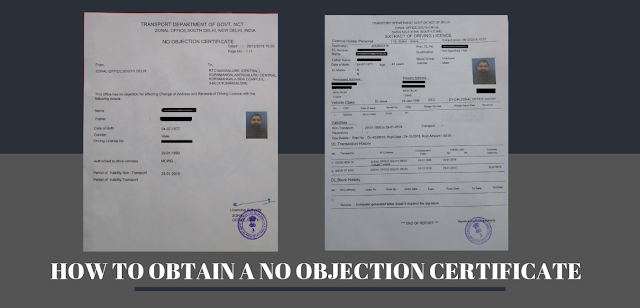Delegation
What is Delegation and How important it is in corporate environment? Are there any rules to be followed for delegation? If the delegation is not effective, does it make any difference?
Delegation is one of the most important management skills. According to Wikipedia, “Delegation is the assignment of authority and responsibility to another person (normally from a manager to a subordinate) to carry out specific activities. However the person who delegated the work remains accountable for the outcome of the delegated work”. Delegation empowers a subordinate to make decisions i.e. it is a shift of decision-making authority from one organizational level to lower one. Delegation is good, can save money and time, help in building skills and motivate people.
As I mentioned earlier, delegation is one of the most important skills and one of the top ten qualities of a good leader/manager. Delegation is a two process. Good delegation saves time, develops people, grooms a successor and motivates. On the other hand, poor delegation will cause frustration, de-motivates people and creates confusions and fails to achieve the task. So, I would say it’s worth giving it a thought and worth improving. Do you feel stressed and overloaded? If Yes, you need to brush up your delegation skills, more so if you are a manager and you have people reporting to you. If you work on your own, how much can you achieve? You can, but only to a limited amount, however hard you work. You just have 24 hours in a day and hence can complete only limited number of tasks, and therefore success will also be limited.
Delegation is very helpful aid for succession planning, personal development, seeking and encouraging promotion. Delegation enables us to gain experience to take on higher responsibilities and that’s how we grow in the job, isn’t? Effective delegation is crucial, not only to manage you work well but also to manage succession. It can also be used to develop your people and yourself.
If delegation is so important, why people don’t delegate? It takes a lot of effort to delegate and that’s why people avoid it. You are the subject matter expert and know the content or subject inside out. You can do that even in your sleep, if somebody asks you to. But the question is, “would it be a good use of your time and efforts”? Well, it’s always easier for yourself to do it rather than asking someone else do it. Delegation allows you to make the best use of your time and skills. It saves you time and gives you space to do the other things, which you cannot delegate or is more confidential and important in nature. It also helps other people in the team grow, learn and develop their potential. As a manager, in our day to day work, I am sure there are enough opportunities for delegation. But, the big question is how to delegate and most importantly when to delegate?
Delegation is a win-win situation when done appropriately. But remember, at times you will have work which is either confidential in nature or very important and hence you will, rather you should not delegate. To decide whether you should delegate or not, you need to consider various aspects and need to think about various points, like:
How critical is this task? If this is very critical you might have to do it yourself, otherwise you can delegate.
Is there someone in your team who has the knowledge and expertise to complete the task?
Do you see an opportunity to grow and develop another person’s skills by delegating?
Is this a recurring task?
Delegation, at times, requires time for it to be effective. You need to ensure that time is available for training, to check progress and to answer any questions.
There are some task which needs attention and hence might not be a good idea to delegate such tasks. Therefore, check the task and level of authority it required?
Having ensured all this does not mean you will be successful in delegation. Effective delegation requires you to ensure you delegate it to the right person, in a right way.
By this time, I am sure I would have given you a food for thought. Even if you did not see delegation as a tool to prove your leadership, its time you give it, it’s due credit. Have you decided to delegate yet? If yes, you need to answer the biggest question, who should we delegate it to? There are few things which are important to consider while delegating work. You need to decide whom to delegate the task to and in order to do that you need to study and understand the background, knowledge, experience and skills of the individual. Not only that, you will need to invest time with this individual. Initially the person will take longer to complete the work in the initial stages of delegation, but later on as the person becomes expert and gains knowledge he will pick up speed. Remember, you are an expert in the field but the other person is new and learning. Do not forget to check the current workload of the person, if he is already overloaded, delegating more work to him would be a disaster and disaster for your success as well.
Success of any program depends on how well you communicate the goals. It is same for delegation as well. Therefore, make sure you articulate the desired outcome, clearly. Not only this, I think it would be good to document the roles, responsibilities and the desired outcome. While documenting, give due thought to risks associated with the work and with the delegation itself. Clearly identify the constraints, if any and make sure you document the lines of authority and accountability. The best thing to do would be to ask for volunteers for the work you want to delegate and then study the background of the individual. You are delegating the responsibility but the accountability still remains with you. Just delegating the work is not enough, you need to provide continuous support and help to ensure success. Remember, you are delegating the work to empower the individual, but if you start micro-managing the delegated work, it defeats the whole purpose of delegation. Therefore, focus should be on results rather than process or how it has been done. Let the person work as per his own style, focus as I mentioned earlier should be on the results. Have an agreement before delegating the work, do not allow the person to shift the work and responsibility back to you. Do not spoon feed, rather facilitate learning and facilitate the individual finding a solution. As the success of any program depends on meeting the deadlines and goals, similarly make sure to establish and agree on the timelines and goals and review work at regular intervals to ensure no slippages.
Few important things to keep in mind while delegating:
Set the expectations right and have a clear understanding on what needs to be achieved.
Communicate clearly, the timelines and deadlines, and also agree on a schedule or frequency of tollgate meetings (Status check meetings)
Let the individual know that you are available for any questions or concerns and they should reach out to you if any problem occurs.
Make sure while reviewing the work, provide time to the individual, do quality check. If you are not satisfied with the work, ask them to re-do it meet the acceptance criteria.
Reward the good work and efforts of the individual.
Initially delegating work might not be hassle free, but effective delegation will go long way.
Remember, spend enough time in identifying the opportunities to be delegated and whom to be delegated. It is very important for the success and can make it or break it.
Depending on the work, if possible, delegate frequently. It saves you time and energy, and for the individual it gives an opportunity to experience and learn something new.
Effective delegation requires right tasks to be delegated, to the right people, and the right way. Effective delegation can increase productivity, save time, empower people and do lot more in less time, reduces your workload and stress. Where you are no is because of what you are doing, But what you are doing now is not going to take you where you want to go.
Go ahead, use and utilize your new-found skill “Delegation”. Happy delegating.




Comments